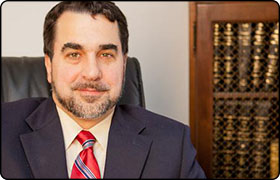Oyster RICO Act Lawyer, Virginia, page 2
Sponsored Law Firm
-
 x
x

Click For More Info:
-
Legal Defense Center
Serving Hampton Roads & Northampton County VA» view mapReckless Driving, DUI/DWI Leading DUI & Traffic Attorney
If your freedom, license and record are on the line, call me for legal help.
800-786-6670
Not enough matches for Oyster RICO Act lawyer.
Below are all Oyster Criminal lawyers.
Terrence K. Martin
✓ VERIFIEDI am attorney Terrence K. martin of the Law Office of Terry Martin and Associates. I know that my clients come to me in times of real need, and I am c... (more)
Jim Hurley
Jim Hurley has been practicing law throughout Virginia for more than two-and-a-half decades. During his career, he has tried more than 100 jury trials... (more)
S. W. Dawson
✓ VERIFIEDS. W. Dawson, Esq., is the founder and managing member of Dawson, P.L.C. Mr. Dawson specializes in bespoke litigation strategies, particularly in t... (more)
Paul Everette Thomas
✓ VERIFIEDPaul Thomas is an experienced lawyer proudly serving Virginia Beach, Virginia and the neighboring communities. He practices law in the following area... (more)
Simon James Marle
✓ VERIFIEDAttorney Simon J. Marle has 21 years of experience representing satisfied clients in divorce, criminal, and traffic cases in the courts of Virginia Be... (more)
Michelle Mordue Helms
✓ VERIFIEDMichelle Mordue Helms is a distinguished DUI/DWI, Criminal Defense, Personal Injury and Family Law attorney who routinely handles cases throughout Ham... (more)
Robert G. Morecock
FREE CONSULTATION
CONTACTFREE CONSULTATION
CONTACT Monte Kuligowski Virginia Beach, VA
Monte Kuligowski Virginia Beach, VA AboutLegal Defense Center
AboutLegal Defense Center Practice AreasWe are Specialized
Practice AreasWe are Specialized






